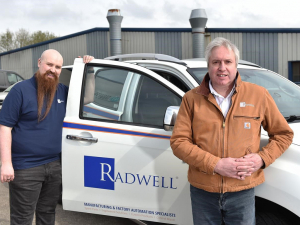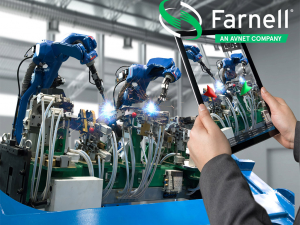Atlas Copco Compressors delivers latest thinking on Class 0 compressed air at Process Engineering Live
20th March 2009
Source:
Atlas Copco Group

A highlight of the seminar programme at Process Engineering Live, held in Manchester last week, was Atlas Copco’s paper on issues surrounding Class 0 and oil free air. The paper was delivered by Anil Hingorani, Project Manager in Atlas Copco Compressor Technique’s Oil-free Air Division who presented an overview of oil-free applications within the process industries and discussed why air purity is of vital importance to their operations.
Anil’s presentation covered the evolution of air purity standards examining crucial differences between the second and first edition of ISO 8573-1. Additionally, he introduced delegates to the associated TUV test results and how they have been interpreted. The presentation also included an examination of some of the myths surrounding oil-free compression techniques and a question and answer session.
Atlas Copco Compressors offers both oil-free and oil-injected compressors and so is well positioned to provide the compressor solutions best suited for specific needs. It has always strongly maintained that oil-free compressors are the only solution for oil-free applications and believes the facts speak for themselves.
Compressor oil accounts for the majority of contamination in oil-injected compressor systems. When relying solely on filters and dryers to remove oil, there is exposure to contamination risks.
There are three key failure risks associated with oil-injected compressor systems:
– Temperature rise will increase oil carry over through the filters
– Higher temperatures also severely reduce the lifetime of activated carbon filters
– If filters become blocked because they are not changed in a timely manner, the filter will be bypassed and oil will enter the process.
The dominant factor influencing the purity of filtration systems is ambient temperature. Oil carryover through filter media increases exponentially according to the temperature at the filtration interface. Filter performance is often specified at 20ºC. If the ambient temperature in the compressor room increases to 30ºC, the compressor outlet temperature could easily be ten degrees greater than that, increasing the oil carryover by a factor of 20 times the specified value.
A combination of oil removal systems – oil separator, oil removal filters and refrigeration dryer − are the stages responsible for meeting the air quality specifications. A failure of any one of these elements would result in contamination of the outlet air and the operator’s process.
Atlas Copco Compressors offers both oil-free and oil-injected compressors and so is well positioned to provide the compressor solutions best suited for specific needs. It has always strongly maintained that oil-free compressors are the only solution for oil-free applications and believes the facts speak for themselves.
Compressor oil accounts for the majority of contamination in oil-injected compressor systems. When relying solely on filters and dryers to remove oil, there is exposure to contamination risks.
There are three key failure risks associated with oil-injected compressor systems:
– Temperature rise will increase oil carry over through the filters
– Higher temperatures also severely reduce the lifetime of activated carbon filters
– If filters become blocked because they are not changed in a timely manner, the filter will be bypassed and oil will enter the process.
The dominant factor influencing the purity of filtration systems is ambient temperature. Oil carryover through filter media increases exponentially according to the temperature at the filtration interface. Filter performance is often specified at 20ºC. If the ambient temperature in the compressor room increases to 30ºC, the compressor outlet temperature could easily be ten degrees greater than that, increasing the oil carryover by a factor of 20 times the specified value.
A combination of oil removal systems – oil separator, oil removal filters and refrigeration dryer − are the stages responsible for meeting the air quality specifications. A failure of any one of these elements would result in contamination of the outlet air and the operator’s process.
Similar articles
More from Atlas Copco Group
- Anglian Compressors nominated as Distributor of the Year 11th June 2021
- Laser cutter saves money with on-site nitrogen generation 24th May 2021
- Screw compressor range for workshops and small businesses 19th April 2021
- Marine compressors provide air power for RRS Sir David Attenborough 26th November 2020












Write a comment
No comments